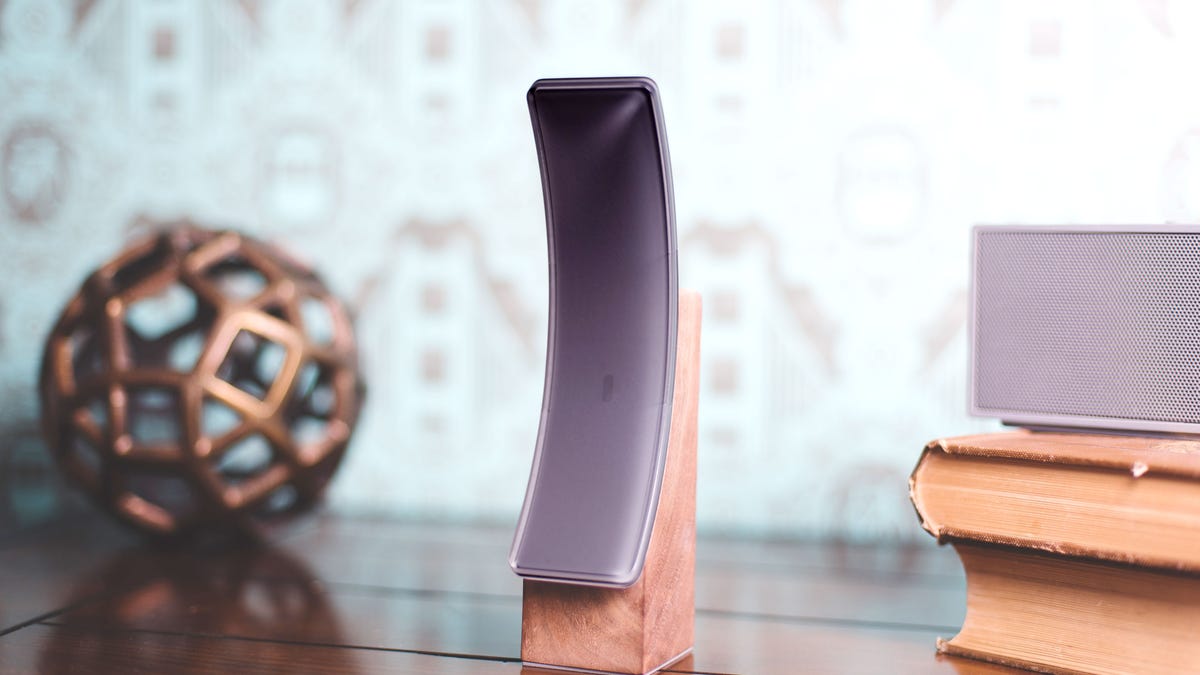This startup wants to boost your smart home's IQ
Silk Labs' Sense technology knows if you're in the house and will handle the lights and music for you.
Computing smarts are spreading to just about anything with a power cord or battery. Good luck finding your way through that jumble of products.
Startup Silk Labs believes it can bring the brains to make better sense of it all.
"We're trying to make your house as smart as your smartphone," said Chief Executive Andreas Gal, who left his chief technology officer job at Firefox maker Mozilla in 2015 to co-found the company.
San Mateo, California-based Silk Labs now is showing off its first product in the run-up to the Mobile World Congress tech show that begins next week in Barcelona, Spain. The Wi-Fi-connected Sense notices when you enter a room and initiates actions like turning on lights and music. It's designed to provide a smart-home network's central coordination.
That would be a noteworthy step, given that most of today's smart-home devices aren't actually that smart when it comes to working together. It also would advance the idea called the Internet of Things, the reinvention of your daily life by a tech industry bent on connecting everything you own.
Silk Labs' Sense can slide up and down its wooden mount to best position its camera to monitor a room.
As door locks, light bulbs, thermostats, smoke detectors, refrigerators and power meters get computer brains and network connections, our electronic world is becoming almost alive. Once it matures, your music could pause when mom calls, your garage door could open when you pull into the driveway, and your door could unlock for an authorized package and deliveryman.
"The Internet now senses, thinks and acts," said computer security expert Bruce Schneier in a February blog post. "You can think of the sensors as the eyes and ears of the Internet, the actuators as the hands and feet of the Internet, and the stuff in the middle as the brain."
Silk Labs' Sense, for sale through Kickstarter with a starting cost of $225, comes with a camera to identify who's in a room and with a Bluetooth network to help detect if you've left the house. It isn't geared for the general public, though. Instead, it's for developers and tech types who want to try the technology and hook it up to more household devices.
Fostering those connections to other devices will be crucial to Silk's success, but it's also an area where developers already have an overabundance of options. Other efforts to get smart-home devices to cooperate include Apple's HomeKit project, Google's Weave, the Open Interconnect Consortium backed by Intel and Samsung, and the AllSeen Alliance whose members include Microsoft, Philips, Sony, LG Electronics and Canon.
Silk Labs will be able to use some of those other technologies to automate smart-home actions. It hopes eventually to profit not by selling devices like the Sense, but by offering services that work on products connected to a Silk Labs fabric. That could include alerts that your ailing dishwasher needs a fix before a complete breakdown or video sent to your phone when a stranger show up in your house.


